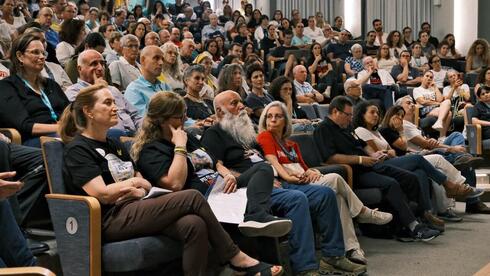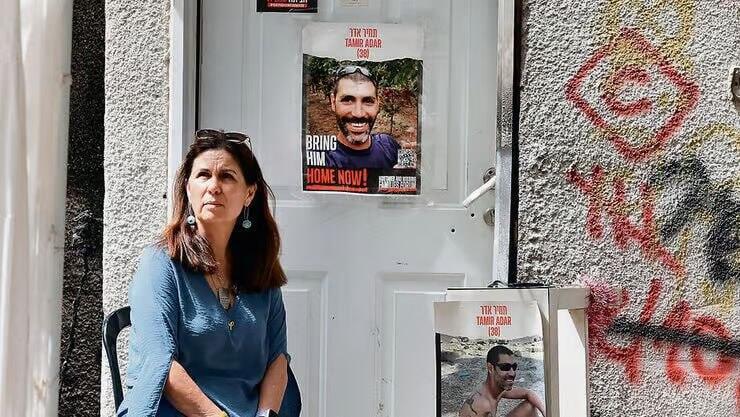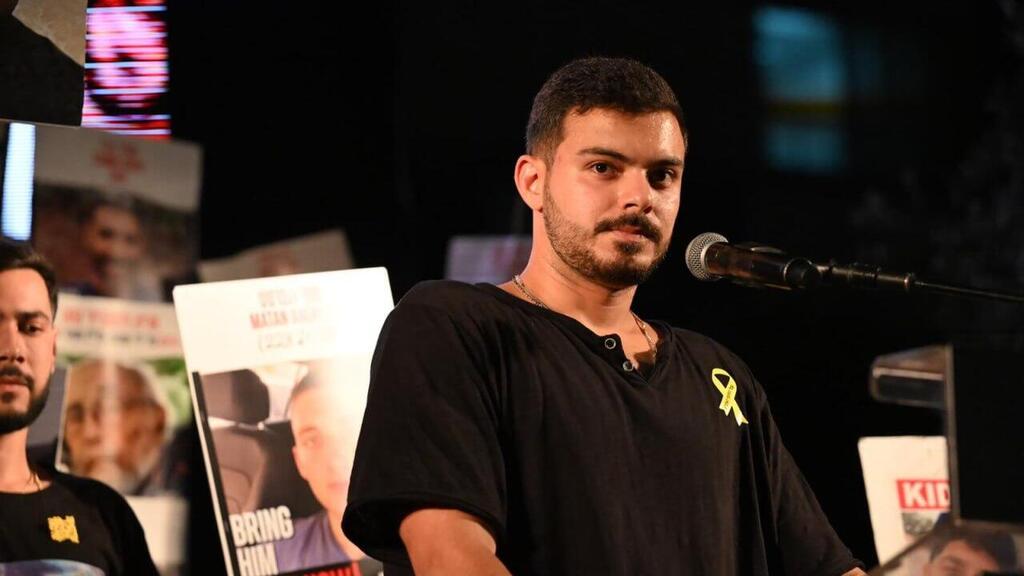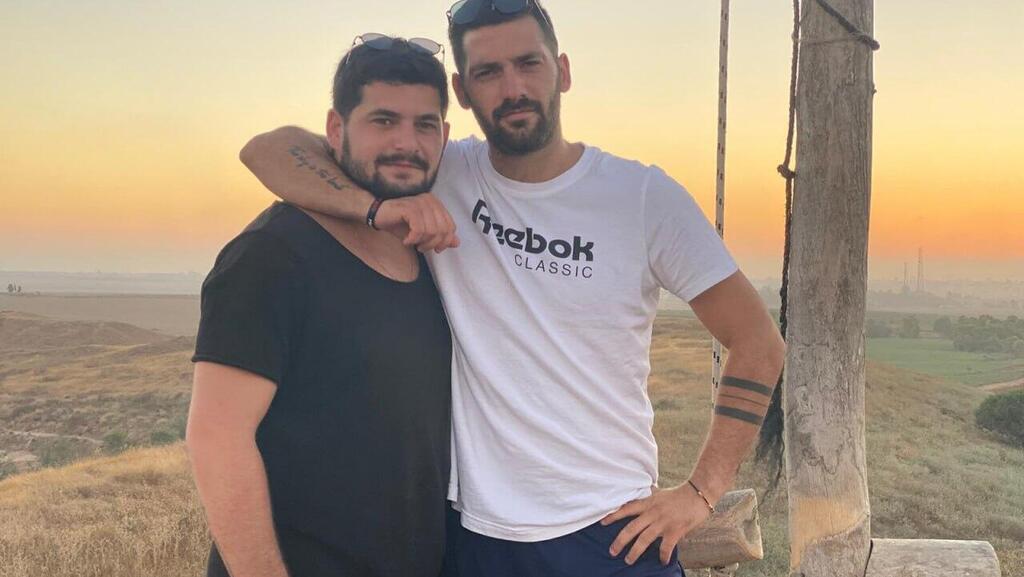Dani Miran, father of hostage Omri Miran, spoke with pain. “To be honest, I reflect and wonder every day what kind of child we’ll get back, how long rehabilitation will take. Every day adds another layer of sorrow, pain and longing. The uncertainty is the worst of all,” he said.
6 View gallery
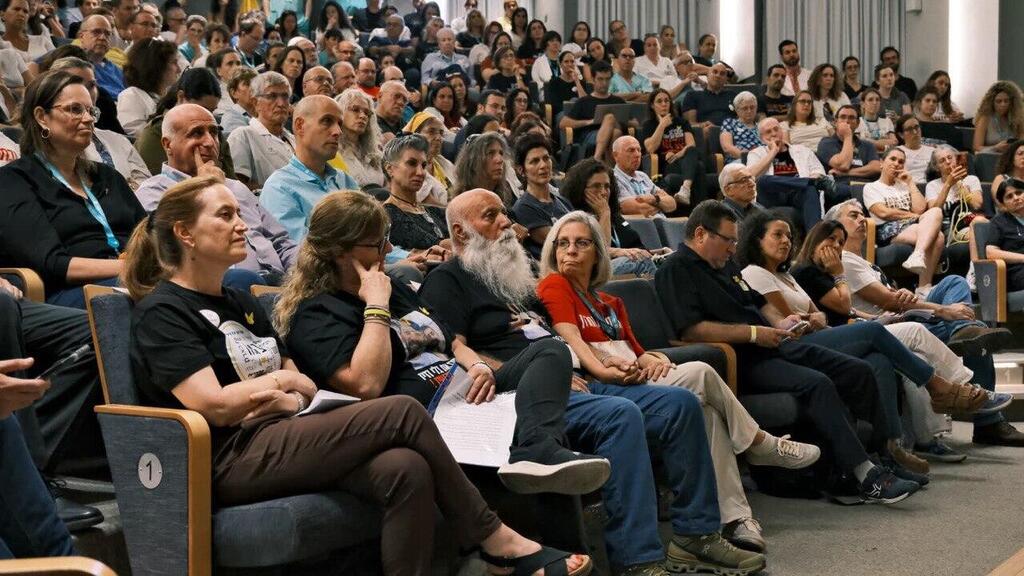

The national emergency conference of physical and mental health professionals for the return of the hostages
(Photo: Adar Eyal)
6 View gallery
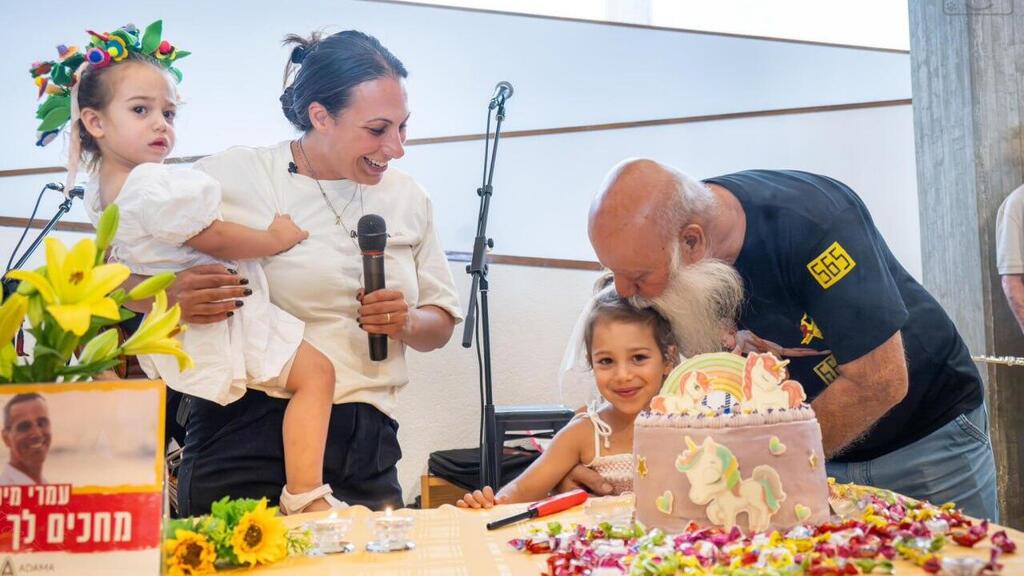

Dani Miran with his grandaughters and Yishai Miran the wife of Omri Miran who is held hostage in Gaza
“Roni, who was two years and two months, asked, ‘Where’s dad?’ Lishi told her he was on a trip. Then she explained that he got lost on the trip. Finally, she said he was in Gaza. After some time, Roni told Lishi: ‘Mom, I remember bad people took Tzachi and Dad.’ Two weeks later, she asked if Omri was still her father. Every circle of the family is shattered. There isn’t a single person in our family who isn’t broken. None of my three children has been able to work since,” he said.
‘We’ve become different people’
“We’ve become different people,” she said. “One morning, I found myself just sitting on the couch crying, asking myself, Who am I? What happened to me? In this storm, I realize transformation. I’m no longer the same Yael, not the same friend. I avoid social gatherings. My partner and I had many social circles, but I can’t, I can’t even make small talk. I’m not the same partner — less patient, less tolerant. I’m not the same mother. Recently, my 25-year-old daughter told me, ‘I lost my brother, and I also lost a bit of my parents.’”
‘The body and mind can’t bear it’
“We never received videos. From testimonies of released hostages, we know they are held separately, tortured under horrific conditions, living with untreated wounds and subjected to physical abuse. Seeing Ohad and Eli, and the latest videos, was a chilling glimpse of their condition,” she described.
Of the boys’ mother, she said: “My dear sister Talia, her voice was silenced in public. From the day we received the extreme news of their kidnapping, her attempts to be at the forefront and exposed to information weakened and crushed her. Since then, she has built protective walls that protect her mind and body. She is treated with pills, cut off from the media, we only inform her of what she can absorb.”
Meir also spoke of their father’s extreme decline. “Doron suffers from Parkinson’s and dementia. When he learned his sons were kidnapped, he shut down his swallowing reflex. He refused to eat, drink or take medicine — effectively asking to die. His frail body and mind couldn’t bear the news. My sister fights to keep him alive,” she described
Difficult to hear: Mother of released hostage testifies
“Omer was held for 505 days in captivity. For 197 days, he was alone in a tunnel just a few meters long, with his waste pit beside him. Alone 24/7, except for the brief moments when rotten, meager food was pushed in. He had his first shower after nine months.
“He endured 197 days of torture, but he says the hardest period was after the Rafah deal collapsed. He describes a series of abuses: severe beatings, humiliations — ‘crawl like a dog,’ ‘curse your family,’ ‘soil yourself.’ The worst was when they came in with an iron rod, and he felt its force. They sprayed him with insecticide — because he was Jewish.”
‘They are at risk of disappearing’
Professor Hagai Levine, head of health for the Hostages and Missing Families Forum, said: “Health is complete physical, mental, and social well-being — not just the absence of disease. The health of a hostage is harmed in the most severe way imaginable, in every aspect.
“What happens to a hostage? We can’t even imagine the severe violations of rights and health. We researched and proved that when someone is held hostage, their entire family is held hostage, their community is held hostage. Israeli society cannot heal. Until all the hostages return, we are all hostages.
Levine also noted that some hostages are aware of or hear about the ongoing negotiations.
“If we don’t bring an agreement now, to what depths of despair will they sink? How will they survive another day?”



